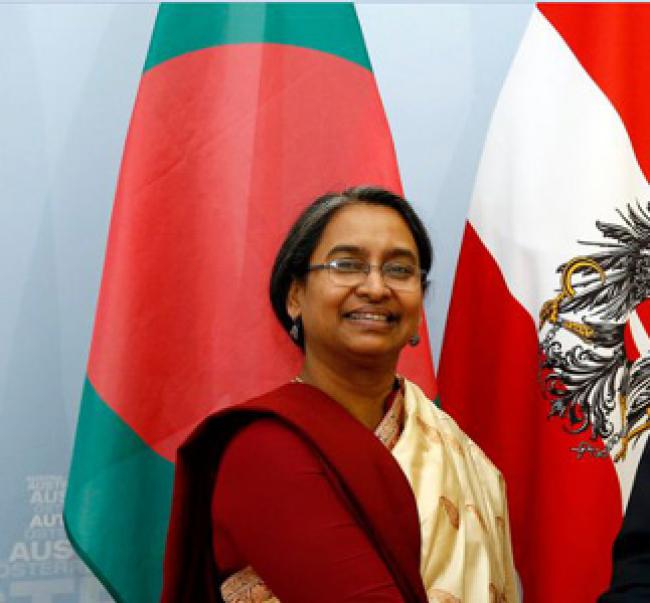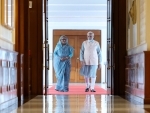Column

Bangaladesh FM calls for Ganges-Brahmaputra-Meghna basin regime
Delivering the 4th RK Mishra Memorial Lecture at Observer Research Foundation in Delhi on Thursday, Dr Dipu Moni said “a shared future Basin regime would recognise the divergent needs and priorities of each State on both the existing and emerging principles of international law”.
Saying that we stand on the threshold of setting in new mechanisms for realising our common goals and aspirations, Dr Dipu Moni said a Basin regime, secured by a Basin instrument, would strive for a higher and better quality of life, materially, economically and socially.
The event was chaired by Dr Shashi Tharoor, Minister of State for HRD.
Dr Dipu Moni said a Basin regime would also address issues historically ignored by erstwhile imperial powers, but which are quintessentially important. Such a regime would advance the strengths of each of its component civilizations, three or five thousand years old.
“A Basin regime would demand a co-mingling of its divergent peoples each enriching another, joining hands, walking shoulder to shoulder, in the undertakings in science and technology and sharing the benefits of their collective and separate achievements”, Dr Moni said.
Dr. Dipu Moni said “a Basin regime would demand a Grand Design to be converted into a Grade Concert.”
Elaborating on her vision strategy for the Basin, Dr Moni said a Basin regime would advance consistently with international and regional regimes and charters, i.e., the United Nations framework, of regional frameworks like SAARC, BIMSTEC and ASEAN.
She said “we would be aware for the encumbrances and of the impediments in our path. Often, the dramatis personae may act their part of cross or conflictive purposes, even of unfair competition not by States and peoples, but by powerful cross-country or international actors whose goals are not consistent with national or people’s objectives”.
“But we would ‘will’ a safe and secure future of the Basin regime and of ‘the golden lands’ we share with our neighbours,” the Bangladesh Foreign Minister said.
Dr Dipu Moni said naturally, the Basin regime would, beyond the boundaries of India and Bangladesh, include all other basin sovereign States, namely Bhutan, Nepal, Myanmar and in the upper reaches, China, as well as the Bay of Bengal itself.
She said the Basin approach, together with its delta component, would help us address the common realities of our region, by ensuring the protection of the natural environment and enabling us to address climate change.
It would also enable us to prepare emergency stocks of essential drugs and medicinal supplies to cope with epidemics. Additionally, such a regime would allow us for the creation of Food Banks, Buffer Stocks of Commodities and natural resources and strengthen information and
technology data bases, Dr Dipu Moni said.
“The Basin regime would integrate many economic and cultural processes and allow us to pool our respective fields of expertise and augment our human resources. It would enable a holistic approach, rather than a case-by-case approach to cross-border or international issues by facilitating Joint Basin Management of the common rivers and joint undertakings in the sea-bed.
The Bangladesh FM also praised the efforts of both the Sheikh Hasina Government and the Manmohan Singh government in improving Bangladesh-India relations, saying they were able to look at the world through a shared prism. She said both Sheikh Hasina and Dr Singh have
demonstrated that our relationship is underpinned by trust, hope and conviction in a future of shared destinies for our peoples.
Earlier, ORF Director Sunjoy Joshi welcomed Dr Dipu Moni, her delegation members and Dr Shashi Tharoor.



